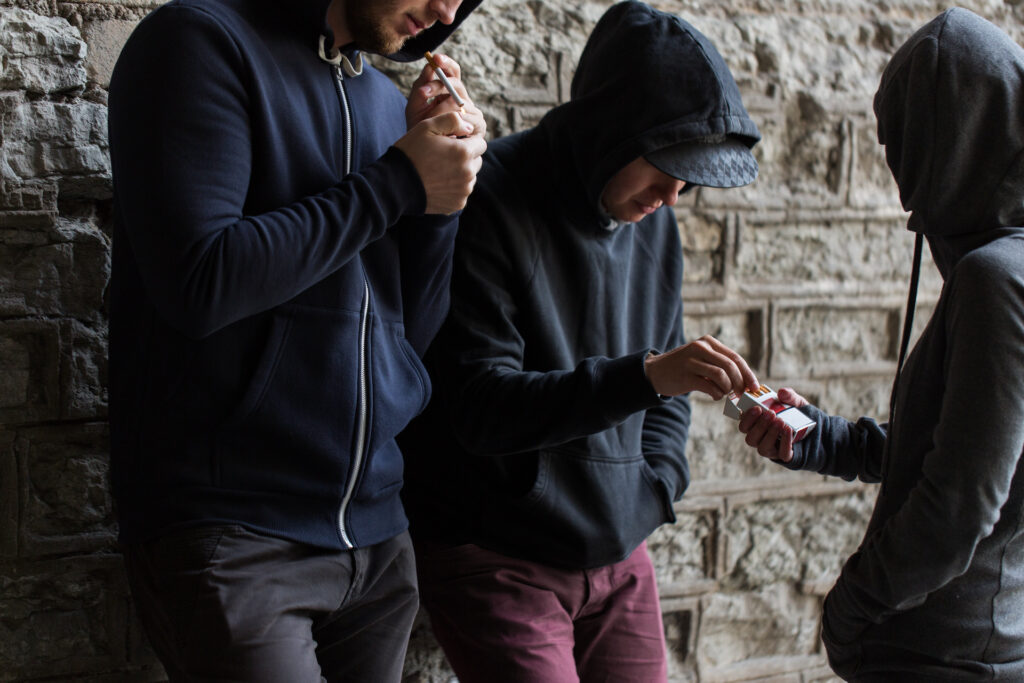“Just Say No” Programs in Public School Education
If you went to a North American elementary school between the mid-eighties and the early 2000s, chances are you and your classmates sat snickering through some sort of preventive drug education (PDE) aimed at scaring you into never trying drugs.
In my own Ontario-based school experience, I remember being subjected to a number of DARE presentations. As well as an ongoing barrage of say-no-to-drugs messaging from television and print media. One campaign that stands out, in particular, is the US anti-narcotics TV ad series, This Is Your Brain on Drugs. It showed an egg being dropped into a frying pan, ultimately implying that using drugs will turn your brain to mush.
As a pre-teen, I remember thinking to myself “sheesh, drugs are really bad!” I even believed for a while that the reason LSD was referred to as acid was because it would burn a hole in your brain if you used it enough—something that I later learned was not even remotely true.

Once I got into my later years of high school, I was surrounded with enough drug use and ironically-worn DARE shirts to realize that nobody in my friend’s circle was taking this sort of messaging seriously. When I look back from my vantage point as an adult with lived substance use on the preventive drug education I experienced, it’s not surprising to me that this messaging was not effective in my own peer group or continent-wide.
With this in mind, here are a few reasons why, in my opinion, “Just Say No” programming will never work.
1. Moralizing Drug Use Makes People “Bad”
To start, PDE programs such as DARE tend to emphasize that drugs are inherently bad and that the consumption of drugs is a bad choice. This moralization is also extended to the people who use drugs themselves, who are often seen as bad people. This is problematic for a number of reasons.
Furthermore, it’s simplistic to say that the world is divided into good and bad people; an inarguably poor and shallow model of the world. More importantly, there is no reason to accept the use of drugs as an indicator of someone’s moral character. People from all walks of life, with all sorts of belief systems and life experiences, use drugs.
Moralizing drug use also invokes the blaming and shaming of people who use drugs. This creates stigma and othering in a way that is completely unnecessary. It ultimately poses a barrier for people who use drugs to seek treatment when needed.
What’s more, the moralizing model is not likely to receive much buy-in from people who use drugs, as they may (rightfully) not want to see themselves as bad. Conversely, this model may cause people who don’t use drugs to downplay their own risk factors for using drugs. They may see themselves as good people, and therefore not at risk of using drugs.
2. Social Factors Are Often Overlooked
“Just Say No” places too big of an emphasis on the individual’s relationship to drugs without paying attention to the broader social factors at play. The high school I went to was in a lower-income part of town and was often characterized as the druggie high school. This characterization was often by its own students and neighbouring schools from a higher socioeconomic bracket.
When I think back to the hours of after-school time available and unsupervised, it left a prime time for my peer group’s substance use. I wonder about the potential mitigating effects of things like the availability of after-school programming, well-maintained recreational areas, youth job opportunities, and so on. I also wonder about the economic pressures on my peers’ families, to work late, as well as their own lack of options for social activities outside of getting together for drinks.

In short, “Just Say No” is much easier when you have more options for things to do or more opportunities for social mobility. Social factors are important to consider, and PDE often fails to take them into account.
3. Drug Awareness Tends To Paint a One-sided Picture
There’s no faster way to lose somebody’s respect than to lie to them. At the same time, many of these PDE programs had no problem painting what felt like a wilfully incomplete picture of drugs as the scourge of society. Completely overlooking the roles that altered states have played in bringing culture forward.
Comedian Bill Hicks best summarizes this cultural-catalyst view of drugs in an excerpt that is also found on the Tool album Aenima (great album, and also heavily drug-influenced):
“I think drugs have done some good things for us. I really do. And if you don’t believe drugs have done good things for us, do me a favour. Go home tonight. Take all your albums, all your tapes and all your CDs and burn them. ‘Cause you know what, the musicians that made all that great music that’s enhanced your lives throughout the years were real f**king high on drugs.”
As a high school kid who was busy developing his own identity through music, comedy, visual art and literature, I started to realize that many of the people I looked up to were largely influenced by drugs. Some of my favourite bands, comedians, and even scientists openly touted drug use as a sort of cultural catalyst. This view was ultimately incompatible with the scare tactics of the “Just Say No” rhetoric in my own view. Thus, like many of my peers, I chose to drop the latter.
4. “Just Say No” Downplays Peripheral Skills
From an evidence-based objective lens, “Just Say No” is simply not effective. If someone is wanting to abstain from substance use and enters recovery with the tingle tool of “Just Say No”, they are very likely going to relapse. As we’ve talked about in a previous article about alumni’s struggles with recovery.
Saying no to drugs is not just a matter of being strong-willed. It is also a matter of building up tools for life, understanding your values, making lists of resources, having goals, knowing what to do during a slip or a relapse. All of these peripheral skills and areas of knowledge are part of developing and maintaining a healthy relationship with substance use.
In Closing
The year after I graduated high school, Canada’s National Crime Prevention Centre published a guide called School-Based Drug Abuse Prevention: Promising and Successful Programs. The guide highlights the ways in which “Just Say No” style programs have failed, and advocates for an evidence-based approach to drug education.
As an adult, I now have the sad satisfaction of having my suspicions confirmed. Evaluative research and recent meta-analyses of DARE and similar programs show that these programs are largely ineffective. But educating youth about drugs and drug use still continues to be important. I do believe that Canada is aiming to do better in its school systems.
The role of parents and caregivers in this conversation also needs to be considered. As a father, I know that I’ll need to talk with my own children about drugs at some point in their lives. When that time comes, I vow to do so in a way that is honest, heartfelt and empowering.
———————–
Ionatan Waisgluss is a writer, educator and web developer living in the qathet region of British Columbia. He is the founder of SquareByte.ca



